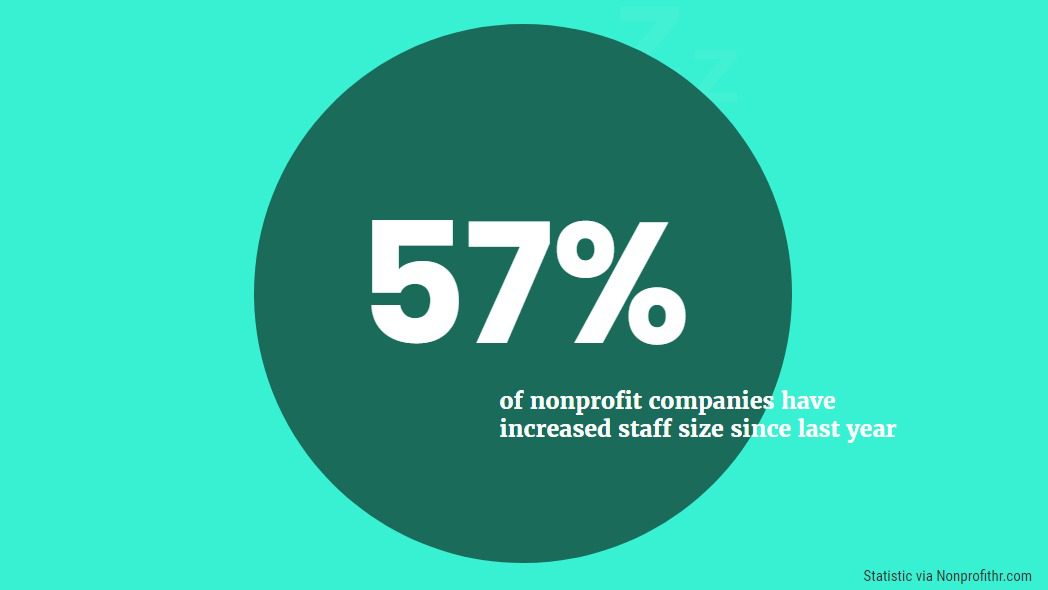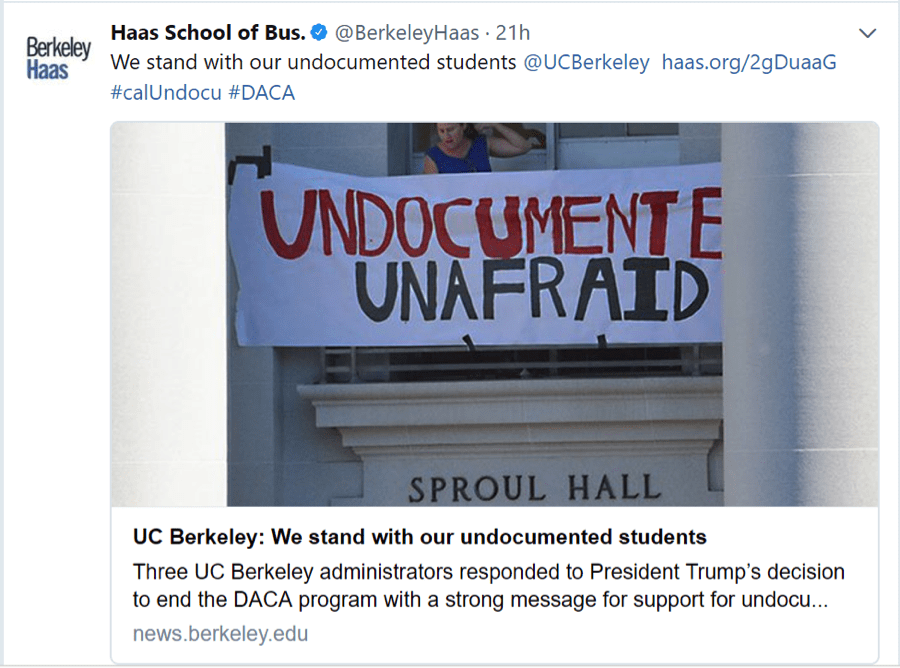New Haas Center Seeks to Tackle Gender, Equity, and Leadership Head On

As one headline after another alleges sexual harassment against women by men in power from Hollywood to Congress, the launch earlier this month UC Berkeley’s Haas School of Business of a new Center for Gender, Equity, and Leadership (CGEL) seems more timely than ever. In fact, the idea for the center significantly predated the current media firestorm—and while its scope will certainly include sexual harassment, it will be significantly wider—addressing issues ranging from the persistent gender pay gap to inadequate maternity leave to the fact that currently only 5.6 percent of CEOs at S&P 500 companies are women.
Since 2014, Kellie McElhaney has been teaching a course at Haas called “The Business Case for Investing in Women.” Regularly over-subscribed, the immensely popular class won McElhaney, an associate adjunct professor at Haas, the Earl F. Cheit Award for Excellence in Teaching. Students in the class were eager for data demonstrating that companies with greater numbers of women in leadership have higher share prices and better returns on equity and investment than companies with fewer women. In fact, so too were companies. And McElhaney delivered.
Together in a 2016 study with Genevieve Smith of the International Center for Research on Women’s advisory practice, McElhaney zeroed in on how Gap Inc. has managed to achieve pay equity at the like-for-like level and equal pay at the organizational level through its company culture, practices, and policies. The relationships that helped spur that research also led the Gap Foundation to become a founding corporate donor of the new center—contributing part of the $1.9 million McElhaney has raised to date, which also includes gifts from alumni and friends. With an ultimate fundraising goal of $10 million, McElhaney hopes CGEL will bring together leaders from many backgrounds to help advance gender and diversity in policy and business, engage male and female allies and people of all ethnicities, races, and classes around a shared goal of gender and diversity, and develop business leaders who view gender as a spectrum rather than a binary construct.
“The idea for the center has been percolating for years,” McElhaney tells Clear Admit. “We had kind of a scatterplot of things happening at Haas before, but no over-arching strategy.” In addition to McElhaney’s own research and teaching, several other Haas professors have been contributing to growing scholarship on gender, equity, and leadership. Professor Laura Tyson’s research and writing has examined how gender equity works around the globe—including how it is associated with better education and health, higher per capita income, faster and more inclusive growth, and greater international competitiveness. Currently faculty director of the Haas Institute for Business & Social Impact, Tyson will form part of the leadership team of CGEL. Professor Laura Kray, who studies gender stereotyping and negotiations, rounds out the inaugural CGEL leadership team.
“The first mission of the center will be to serve as a hub for all the things that have already been happening in pockets all over Haas,” says McElhaney. “There are already courses on power, race, gender, equity,” she explains. “In earnest, we thought to ourselves, ‘Let’s look at all that is happening here around these issues. Wouldn’t it be more effective if we could bring it all together, see what we are doing, and see where we might benefit from going long and deep?”
“At Berkeley, you can build anything—but it has to be funded first,” explains McElhaney. Encouraged by Dean Richard Lyons, she set out to raise $1 million by July 2017 as a proof of concept. In June, CGEL had garnered $1.2 million in funds. In addition to corporate funding from Gap, McElhaney also wooed significant gifts from several high-net-worth individuals through a series of strategic luncheons focused on looking at the world vis-à-vis gender equity. “A dozen individuals gave money right away, and now we’re heavy into the corporate funding component,” she explains.
Expanded Faculty Research, Policy Impact, Radical Fierce Ally-ship
Beyond continued fundraising, McElhaney intends to start 2018 with content and substance—with CGEL serving as a hub for new in-depth faculty research, corporate collaboration, conferences, training sessions, and the development of new courses related to gender, equity, and leadership. In addition to McElhaney’s own work documenting the business case for gender equity, several other Haas professors have also been engaged in pathbreaking research. For example, Professor Clayton Critcher has studied the multiple negative consequences of concealing one’s sexual orientation at work; CGEL leadership team member Kray’s recent work examines how fixed beliefs about gender roles preserve the status quo; and Professor Jennifer Chatman has helped reveal how political correctness in the workplace reduces uncertainty in relationships, encouraging greater creativity by both men and women.
Another point of focus for CGEL will be on the intersection between policy and business. “We want to bring together political and business leaders to look at the things on the political agenda that are moving us backward and how we prioritize them,” McElhaney says, offering pay data transparency and mandatory maternity leave as two examples. “We need to bring business voices into the political fold.”
Developing “radical fierce allies” will be another key priority for the center, she continues. “Men need to come to the table in terms of being ambassadors, but so, too, do women,” McElhaney stresses. “As a white woman, I am earning 80.5 cents on the dollar compared to my male counterpoints, but if I were an African-American woman, that would be 60 cents.” The center will host strategically curated salons to talk about all of these issues, drawing together women of all races, classes, and gender identities to talk about how all women need to be better allies for one another.
CGEL’s Time Is Now
Dean Lyons notes that center’s launch is well timed. “The majority of CEOs include gender equity among their Top 10 priorities, yet boardrooms and C-suites are not changing quickly enough,” he on the Haas website. “While the commitment to diversity and an inclusive work environment is there, too few have a handle on solutions. Our new center will work toward immediate change in these areas and pave the way for future generations.”
McElhaney agrees. “We have a ton of traction, and the appetite is so high for this,” she says. But not only are they hitting it at the right time, but also at the right place, which is Haas. “We have just the right mix of ingredients that other schools can’t claim,” she says. “While other schools are focusing more on diversity or counting the heads, we are focused comprehensively on inclusion in our classrooms—through our cases, our choice of course speakers, our faculty teaching methodology, and our student culture.”
CGEL’s launch will help ensure that Haas students hear about gender, equity, and leadership in every class. “This is a new center that puts on the map that this is something we care about,” she says. “We graduate 100 leaders every year—and going forward we are going to graduate 100 diversity fluent leaders. I think we are uniquely positioned to become a talisman of all things equity.”
Learn more about Haas’s new Center for Gender, Equity and Leadership.
This article has been edited and republished with permissions from Clear Admit.
In Search of San Francisco’s Best Nonprofit MBA Programs

Even though San Francisco may be thought of as the place to be for entrepreneurship and technology, the city is home to a diverse community of organizations both private and public, both for and not-for-profit.
Business professionals in the city can apply their business acumen and education in a number of ways, whether helping a new venture get on its feet, contributing to some of the largest tech firms in the world, or supporting a mission they’re passionate about. And though such mission-driven organizations center around the cause and not of profit-making, having a strong business leader at the helm is crucial in helping these organizations to achieve their mission.
Students interested in gaining critical operations and management skills to apply in the nonprofit sector may be interested in pursuing an MBA in Nonprofit Management. Professionals with this degree have moved on into major leadership roles in the nonprofit field, whether working as a Nonprofit Program Director, Development Director, or Community Outreach Coordinator. Nonprofit managers are able to flex their muscles in finance, marketing and a number of other areas of business while still focusing their passion on a broader mission of change or aide.
A few business schools in the San Francisco metro area offer the chance for students to focus their MBA in the field of Nonprofit Management, offering a diverse skill set of nonprofit experience combined with a strong business foundation. Below, you can explore the San Francisco MBAs in Nonprofit Management.
San Francisco Nonprofit MBA Programs You Need To Know
Haas School of Business – UC Berkeley
The Haas School of Business at UC Berkeley offers an MBA concentration in Social Sector Leadership through the university’s Center for Social Sector Leadership. Ranked second overall among business schools with a nonprofit focus by U.S. News & World Report, the Haas program trains up-and-coming business leaders to make a social impact and inspire collaboration between sectors.
The Center for Social Sector Leadership offers students a wide variety of courses to take that can help shape various careers in the social sector, such as nonprofit consulting, board leadership, and strategic or financial nonprofit management. In addition to learning inside the classroom, the center also provides a number of opportunities for experiential learning, such as the Berkeley Board Fellows, which places graduate students on nonprofit boards of directors, or the Haas Impact Investing Network, which offers first-hand experience in impact investing for socially-minded MBAs around the country.

San Francisco State University College of Business
The College of Business at San Francisco State University offers at MBA Emphasis on Nonprofit and Social Enterprise Leadership. With the goal of preparing students to take their business skills to mission-driven organizations, the program will teach students to create a coherent organizational vision, apply innovative solutions to address needs, and evaluate the effectiveness of an organization’s programs in meeting goals.
Students in the Nonprofit and Social Enterprise Leadership emphasis will take the core MBA course requirements as well as three courses for their major: Nonprofits, Policy and Society; Innovation for Sustainability; and Seminar in Social Entrepreneurship, or Strategies in Emerging and Developing Economies. Students will also select two electives that can help further shape their education in leadership and creativity.
Stanford University Graduate School of Business
The Stanford Graduate School of Business offers MBA students the opportunity to pursue a Certificate in Public Management and Social Innovation as part of their degree. Through the university’s Center for Social Innovation, MBA students can explore the social sector and prepare for roles as forces for social change throughout the nonprofit, philanthropic, government, or corporate spheres.
To pursue the certificate, MBA students must complete a social innovation experience that allows them exposure to populations affected by a particular social or environmental issue. Students may also work alongside leaders making contributions in the field to fulfill the requirement.
For more on how MBAs are making a greater social impact, check out how these students are making a difference in their own unique way.
Full-Time MBA Battle: San Francisco vs. Seattle

Whether it’s 49ers vs the Seahawks or Apple vs Microsoft, it may seem like there are a lot of differences between San Francisco and Seattle. Putting these minor dissimilarities aside, however, and you’ll find common ground between two of the northwest’s biggest cities: Both metros are known as top locations for prospective MBAs looking to earn an advanced business degree full-time. Continue reading…
Berkeley Haas Student App Helps Empower Syrian Asylum-Seekers

Students at the Haas School of Business at UC Berkeley have found a unique and important way to potentially help the ongoing Syrian refugee crisis through a new student-built crowd-source platform.
Founded by Sarrah Nomanbhoy, MBA ’18, who’d previously launched a seed accelerator for new Sri Lankan startups, MarHub came to life with the help of a $5,000 Dean’s Seed Fund grant, a $5,000 Hansoo Lee Fellowship, and a $12,500 Jack Larson Scholarship. Nomanbhoy’s idea emerged from last year’s Hult Prize Challenge on Refugees.
Along with significant contributions from co-founders Jerry Philip, EWMBA ’19; Peter Wasserman, MBA/MPH 18; and Srinivas Vaidyanathan, EWMBA 18, MarHub addresses a common concern among refugees who struggle to navigate confusing and often conflicting sources of information once they reach a border.
Nomanbhoy explained in a recent interview, “Information from humanitarian agencies [was] too general, and social media was filled with unverified rumors. About 70 percent of asylum seekers receive negative decisions after this first set of interviews, and many are now in limbo pending the outcome of the appeal process.”
“The hard part psychologically is not knowing how long the wait is going to be. Time moves very slowly when you’re waiting in a queue, but imagine not knowing whether you’ll be stuck for two months or two years,” Philip added
Based on interviews at the Ritsona and Chios refugee camps in Athens, Greece, the MarHub platform evolved into a Facebook messenger-enabled chatbot that allows refugees to “view, evaluate, and comment on information from humanitarian agencies, volunteers on the ground, and other asylum seekers.” As MarHub accumulates users, “the data collected will enable more accurate, timely responses.”
But Chatbots are merely the beginning of Nomanbhoy’s plans for MarHub. Her long-term goal is to use data to “improve migration management” full stop. The product is expected to begin its initial pilot service with Greece’s RefuComm this fall, followed by more rounds of seed funding.
Business, University Leaders Speak Out Against DACA Repeal

When the Trump administration formally announced yesterday that it would end the Deferred Action for Childhood Arrivals program (DACA)—putting a six-month expiration date on legal protections granted to approximately 800,000 people who entered the U.S. illegally as children—universities and business leaders were quick to condemn it. Indeed, vocal defense of the “Dreamers,” as those in the DACA program are called, resounded from Silicon Valley to the Ivy League.
“Dreamers contribute to our companies and our communities just as much as you and I,” tweeted Tim Cook, CEO of Apple and an MBA graduate of Emory’s Goizueta Business School. “Apple will fight for them to be treated as equals.” In an earlier statement Cook noted that Apple employs hundreds of people covered by DACA.
Facebook CEO Mark Zuckerberg released his own statement on his personal Facebook page. “This is a sad day for our country,” he wrote. “The decision to end DACA is not just wrong. It is particularly cruel to offer young people the American Dream, encourage them to come out of the shadows and trust our government, and then punish them for it.” He added that the young people covered by DACA contribute to their communities and to the economy. “I’ve gotten to know some Dreamers over the past few years, and I’ve always been impressed by their strength and sense of purpose. They don’t deserve to live in fear.”
DACA was enacted in 2012 under former President Barack Obama by executive order, allowing individuals who were brought to the United States as children or teens before mid-2007 to apply for protection from deportation and work permits. To apply, they had to be younger than 31 at the time the program was created, have come to the U.S. before turning 16, and have lived in the U.S. for at least five years. The U.S. Citizenship and Immigration Services reports that roughly 788,000 have had their requests for DACA status accepted.
University and Business School Leaders Denounce DACA Repeal
A Center for American Progress survey of roughly 3,000 DACA recipients found that approximately 72 percent of respondents were in higher education, 13 percent of those pursuing master’s degrees. And leaders in higher education—including at several leading business schools—were every bit as vocal as major business leaders in calling out the Trump administration’s decision and pledging their support to Dreamers.
Geoffrey Garrett, dean of the University of Pennsylvania’s Wharton School, called the repeal of DACA “bad for the economy and bad for society” in a tweet that also expressed his support for an official statement issued earlier in the day by University of Pennsylvania President Amy Gutman.

Maryellen Reilly, Wharton Deputy Vice Dean for Admissions, financial aid and career management, quoted from Gutman’s statement in her own tweet: “At Penn, we are committed to providing a safe and welcoming environment for all of our students and we will do everything we can…”

Columbia University, home to Columbia Business School (CBS), issued its own statement in opposition to the repeal of DACA. “Columbia unequivocally opposes the ending of DACA and is working with others in higher education to urge Congress and federal officials to reinstate DACA’s protections and protect the rights of those with DACA status during and after the ‘wind-down’ process that has been announced,” it read. It went on to add that in keeping with Provost John Henry Coatsworth’s November pledge, “our policies and plans aim to ensure that students who had DACA coverage are able to proceed unimpeded with their studies and that all students in the community feel safe and understand beyond question that Columbia’s dedication to inclusion and diversity, including of undocumented students, is and will remain unwavering.” CBS quickly retweeted its parent university’s stance and linked to the full statement.
And the Haas School of Business at the University of California at Berkeley tweeted: “We stand with our undocumented students.” That tweet linked to a statement issued by three ranking university administrators—Chancellor Carol Christ, Vice Chancellor for Equity & Inclusion Oscar, and Undocumented Student Program Director Meng So—that called on the Berkeley community to stand with undocumented scholars at the university and beyond.

“At a time when our campus and community values are being challenged by the prevailing national rhetoric and policy making, we must deepen our resolve and commitment to our principles and to each other,” read the Berkeley administrators’ statement. “During these difficult moments, we must defend strongly held values of dignity, diversity and community.”
The Kelley School of Business at Indiana University at Bloomington, for its part, retweeted its parent university’s official statement and pledge to support all its students.

In the statement, IU President Michael A. McRobbie called out the decision to end DACA “especially in light of the administration’s prior statements expressing support for young people protected by DACA and the strong bipartisan support that exists nationwide for maintaining the program.”
McRobbie went on to underscore the university’s support of all its students. “We believe that all of our students, regardless of their background or country of origin, bring to our campuses unique perspectives and experiences that enrich our living and learning communities,” he wrote. “In doing so, they reflect who we are—and what we strive to be—as a university that provides all students with the opportunity to expand their knowledge and succeed in a place where they feel valued, respected and at home.”
In fact, IU features an entire website—DACA @ IU—dedicated to helping DACA students at the university. On the website, the university states that though bound by state and federal laws, it will take steps to support all IU students regardless of documentation and will only inquire into a person’s immigration status when required by law. IU also provides counseling and support to students who have immigration-related concerns, including connecting students with available resources for educational and living expenses.
Penn, Columbia, Berkeley, and IU are just a few of countless schools that spoke out against the Trump administration’s decision. Prior to the final decision to end DACA, 600 college and university presidents signed a statement promoting DACA back in November. Even more recently, Duke University’s President Vincent E. Price wrote a letter in support of the program, and University of Michigan President Mark Schlissel made a statement as part of the university’s September 1st convocation saying, “I would like to reiterate to all of our students, from our own state, elsewhere around the country, and from all around the world, that you are welcome here … You make us a stronger university and enrich our community and nation by your many talents, hard work, and the diverse perspectives and life experiences you bring to campus.”
As information continues to be provided by the Trump administration, many universities and schools are preparing to provide up-to-date information for their DACA students and all who are affected. Check in with your school for more information.
This article has been edited and republished with permissions from Clear Admit.
Gabelli Faculty Return To School With New Consortium Knowledge

At the Fordham University Gabelli School of Business in New York City, the professors never stop learning. When summer rolls around, instead of taking a break, some go on to further their education—bringing it back to their students come fall.
Three Gabelli professors attended the Aspen Undergraduate Business Education Consortium at the Haas School of Business at UC Berkeley. Business school professors Miguel Alzola, Julita Haber, and Kelly Ulto went to the two-day consortium to learn how to integrate business and the liberal arts. Faculty from about 40 other colleges and universities joined the event.
The consortium sought to show how business education can help students “make sense of the world and their place in it while preparing them to engage responsibly with the life of their times,” according to a press release.
Guest speakers included Harvard Professor Mihir Desai and Haas School Dean Richard Lyons. Lyons spoke about the role of educators for future generations. Vice President of Apple Joel Podolny presented at the consortium too. He explained how a company “can stay true to its vision,” per the press release.
The three faculty members plan to bring this knowledge back to their students this coming school year. Gabelli MBA candidates and undergraduate students alike will learn the value of mixing business with the liberal arts.
